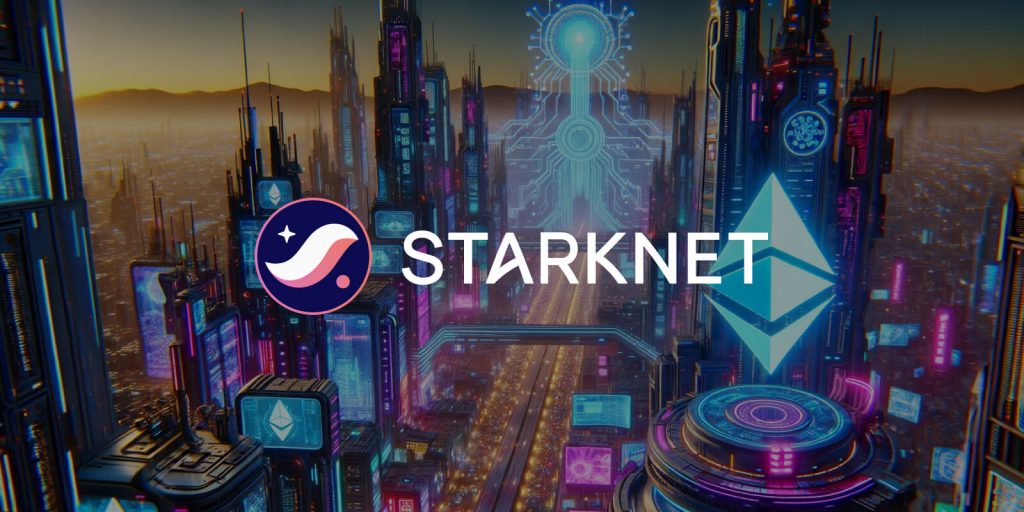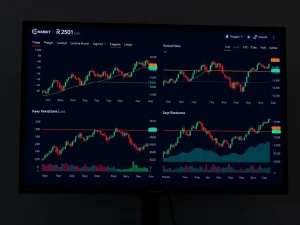Starknet Foundation confirms 1.8 billion STRK token rollout

[ad_1]
Share this article
![]()
The Starknet Foundation has announced that it is slated to distribute 1.8 billion STRK tokens. While no clear date has been given or mentioned, the foundation says that it is coming “soon” with the initiative hitting the ground by the first half of 2024.
This initiative involves various committees, including the “Provisions Committee” to oversee the token distribution process, and specifically, 900 million tokens allocated for rewarding community contributions. The initiative follows recent discussions within the community in anticipation of a token airdrop for STRK.
Now that the news is out, we might as well tell you more!
Starknet is about each of you. Every user, builder and member of our community – existing and future – is a critical piece to building our network into the future of decentralisation for generations to come. The success…
— Starknet Foundation (@StarknetFndn) December 8, 2023
According to the foundation, a second committee will focus on user rebates by covering network transaction fees. Another group, the “DeFi Committee,” aims to enhance DeFi activity within the network by allocating tokens to stimulate liquidity.
“Planning for this initiative is currently underway and a new committee is being formed to oversee the distribution of STRK to reward users for their vital transactions on the network,” the foundation said.
The foundation plans to issue a total of 10 billion STRK tokens, reserving 50% to the foundation and distributing the rest to developers and investors. Starknet also notes that it will be announcing a new incentive mechanism for developers and dApps on the network by next week.
Starknet’s Stack
Starknet Foundation has been guiding and supporting the development of Starknet, a permissionless, decentralized Layer 2 (L2) network built on top of Ethereum which was designed to address the scalability challenges faced by the Ethereum mainnet.
At the outset, it enables dApps (decentralized applications) to achieve significantly higher transaction throughput and lower fees compared to the mainnet, while preserving Ethereum’s robust security and composability. This is achieved through the utilization of STARK, an advanced cryptographic proof system that verifies the validity of transactions off-chain, before submitting them to the mainnet for final settlement.
Such an approach not only improves performance but also enhances on-chain privacy by minimizing the amount of data stored on the mainnet. Notably, StarkNet’s Cairo programming language facilitates the development and deployment of dApps across diverse use cases, ranging from decentralized finance and marketplaces to interactive, Web3-based gaming.
Ethereum Scaling Via L2s
Ethereum scaling involves enhancing the network’s capacity to handle more transactions efficiently and securely. L2 solutions such as Starknet are central to this process and operate on top of the Ethereum blockchain, processing transactions separately before finalizing them on the core chain. This method significantly increases transaction speed and reduces costs, making Ethereum more scalable and user-friendly.
According to Ethereum co-founder Vitalik Buterin, L2 solutions contribute to decentralization by distributing the load of transaction processing, reducing the risk of network congestion and reliance on the main chain. In this sense, the approach simultaneously maintains high-security standards, given how L2 solutions often utilize advanced cryptographic techniques, like zero-knowledge proofs to validate transactions.
By processing transactions off-chain and periodically settling on the main Ethereum blockchain, L2 solutions offer a balance between efficiency, security, and decentralization, aspects and metrics that are crucial for the Ethereum ecosystem’s balance.
Share this article
![]()
[ad_2]
Source link









